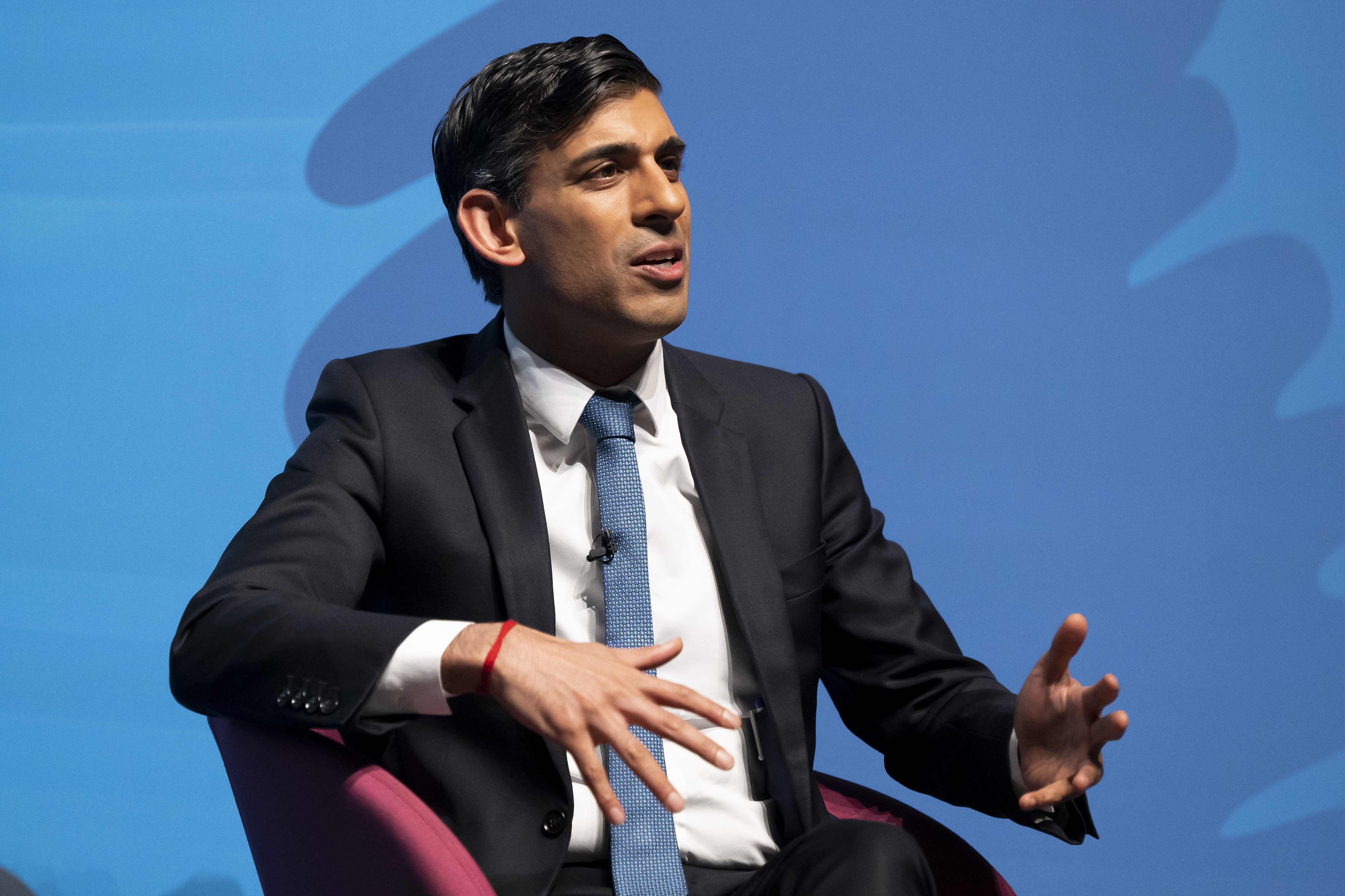Why aren’t women heading more tech startups?
Women are in incredibly short supply as founders of top tech firms. What’s going on, and can the situation change for the better?


This article first appeared in The Business Briefing. To subscribe, click here.
Women can be found heading or taking senior roles in tech firms, but there isn’t gender parity in terms of numbers or profile. We’ve been bemoaning the relatively small number of women working in tech – including working at the top of the tech tree – for as long as there has been a tree, but it’s still a stark reality. What’s going on, and how do we get to that magic 50:50 ratio that would signal parity?
A look at the numbers
Research released on this year’s International Women’s Day (8 March) by developer recruitment platform CodinGame revealed something astonishing. Having analysed the 137 businesses identified by Deloitte’s 50 fastest growing tech startups 2020 and The Sunday Times’ Tech Track 100, (presumably eliminating duplicates across the two lists) CodinGame found that only seven had a female founder or co-founder (5.48%), and of the 251 founders or co-founders only 11 were women (4%).
When IT Pro asked Aude Barral, female co-founder of CodinGame what she thought of that, she talked about factors including stereotyping and unconscious bias which contribute to issues raising startup funds, as well as a lack of role models, saying: “If you never set a goal or imagine yourself in a particular role, it's much less likely that you will achieve that role.”
Bias, imposter syndrome and confidence
For those women with technical qualifications, unconscious bias can kick in as they go through the recruitment process, Keeley Crockett, IEEE member and professor in computational intelligence at Manchester Metropolitan University, says. “Women who graduate in fields such as computer science, can suffer from unconscious bias during the recruitment process, which means they find it difficult to get their first tech position. They then lose confidence and look to other industries,” she explains.
She also said that those looking for venture capital support can encounter bias, saying: “Women are also significantly less likely to secure venture capital than men – this rejection can cause women to have less confidence.”
Amanda Brock, CEO at OpenUK, a not-for-profit that represents open source software, hardware and open data companies in the UK, speaks of a ‘confidence gap’, particularly in terms of ‘imposter syndrome’ where people can feel they’ve got where they are because of luck, not ability. She says of imposter syndrome: “It’s a concept that I am all too familiar with, and one that held me back until it was explained to me. Once I recognised that particular dragon it was possible to work out my tactics in slaying it.”
Get the ITPro daily newsletter
Sign up today and you will receive a free copy of our Future Focus 2025 report - the leading guidance on AI, cybersecurity and other IT challenges as per 700+ senior executives
For Brock this isn’t a gender issue – it’s an everyone issue. She tells The Business Briefing that it’s important to create a culture where everyone can feel they belong, and this means addressing a whole range of factors around inclusion. She says: “I recently heard it explained as diversity meaning you were invited to the dance, inclusion meaning you were able to dance and belonging was when you could choose the music”
We are much more aware of all these issues than we have ever been before, and with awareness come understanding. “The fact these conversations are happening is a major step forward. I was in my 40s before someone asked if that was why I was being self-effacing and diminishing my achievements,” Brock adds.
Owning the future
Keeley Crockett, like Barral, emphasises the need for role models and is clear about the importance of making connections into education. “Young women need role models such as influential women in tech, women who have led their own startups and women inventors,” she says. “This can be achieved by building stronger relationships between businesses and schools, colleges and universities.”
When it comes to founding startups that might find themselves in the Deloitte, Sunday Times or other ‘high flyer’ lists, there is some sage advice to be had. For Barrall, it’s important for would-be founders to realise they don’t need to be a technician. She tells The Business Briefing: “Many people point to the fact that women don't launch tech startups because they haven’t got the necessary programming skills, but that's simply not true. You can totally find a CTO to build your product with you.”
Brock, meanwhile, focuses on confidence, saying: “Failure is an inevitability of success. If we don’t fail, we don’t learn. We need to get much less British about that and be willing to both do it and admit it.” Crockett advises seeking out potential sources of support and funding that are less likely to be under the influence of unconscious bias. “Pitch innovative ideas that showcase the benefit of diverse and inclusive teams, be confident in those ideas and look for funding particularly targeted at women entrepreneurs such as The UK’s Women in Innovation Awards, the Anita Borg Institute for Women and Technology awards and Girl Geeks,” she concludes.

Sandra Vogel is a freelance journalist with decades of experience in long-form and explainer content, research papers, case studies, white papers, blogs, books, and hardware reviews. She has contributed to ZDNet, national newspapers and many of the best known technology web sites.
At ITPro, Sandra has contributed articles on artificial intelligence (AI), measures that can be taken to cope with inflation, the telecoms industry, risk management, and C-suite strategies. In the past, Sandra also contributed handset reviews for ITPro and has written for the brand for more than 13 years in total.
-
 Bigger salaries, more burnout: Is the CISO role in crisis?
Bigger salaries, more burnout: Is the CISO role in crisis?In-depth CISOs are more stressed than ever before – but why is this and what can be done?
By Kate O'Flaherty Published
-
 Cheap cyber crime kits can be bought on the dark web for less than $25
Cheap cyber crime kits can be bought on the dark web for less than $25News Research from NordVPN shows phishing kits are now widely available on the dark web and via messaging apps like Telegram, and are often selling for less than $25.
By Emma Woollacott Published
-
 It’s the end of the road for Women Who Code, following loss of “critical” funding
It’s the end of the road for Women Who Code, following loss of “critical” fundingNews The organization supporting women in the tech industry is being dissolved 13 years after it was founded
By Emma Woollacott Published
-
 Five common barriers holding back women in tech
Five common barriers holding back women in techWomen in tech still face significant challenges in the workplace
By Keri Allan Published
-
 Is Rishi Sunak’s ‘Unicorn Kingdom’ a reachable goal or a mere pipedream?
Is Rishi Sunak’s ‘Unicorn Kingdom’ a reachable goal or a mere pipedream?Analysis Plunging venture capital investment and warnings over high-growth company support raise doubts over the ‘Unicorn Kingdom’ ambition
By Ross Kelly Published
-
 Some Tech Nation programs could continue after Founders Forum acquisition
Some Tech Nation programs could continue after Founders Forum acquisitionNews The acquisition brings to a close a months-long saga over what the future holds for Tech Nation initiatives
By Ross Kelly Published
-
 Podcast transcript: Startup succession: From Tech Nation to Eagle Labs
Podcast transcript: Startup succession: From Tech Nation to Eagle LabsIT Pro Podcast Read the full transcript for this episode of the ITPro Podcast
By Rory Bathgate Published
-
 The ITPro Podcast: Startup succession: From Tech Nation to Eagle Labs
The ITPro Podcast: Startup succession: From Tech Nation to Eagle LabsITPro Podcast Some small firms are already lamenting the loss of Tech Nation, but Barclays Eagle Labs has much to offer the sector
By Rory Bathgate Published
-
 Don’t count Barclays Eagle Labs out just yet – it can deliver in ways Tech Nation never has
Don’t count Barclays Eagle Labs out just yet – it can deliver in ways Tech Nation never hasOpinion Tech Nation has a great track record, but Eagle Labs has the experience, the financial clout, and a clear-cut vision that will deliver positive results for UK tech
By Ross Kelly Published
-
 UK tech sector could face a ‘unicorn winter’ amid spiralling economic conditions
UK tech sector could face a ‘unicorn winter’ amid spiralling economic conditionsNews Tech Nation’s final piece of industry research calls for action to support continued ecosystem growth
By Ross Kelly Published